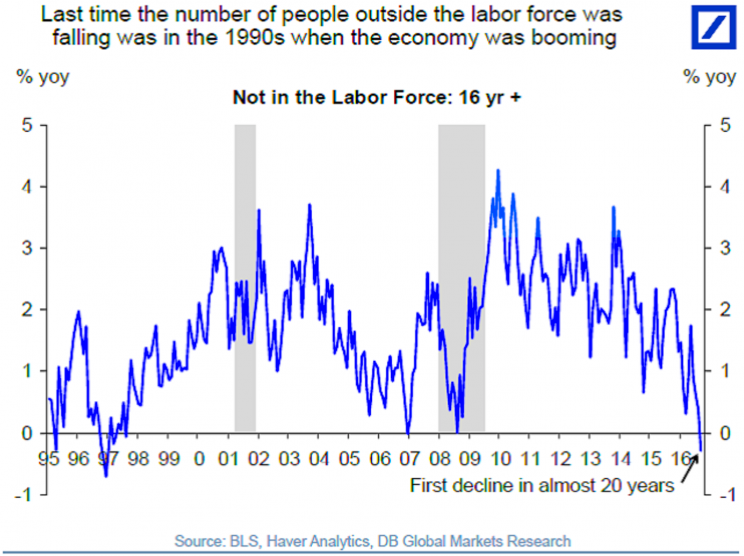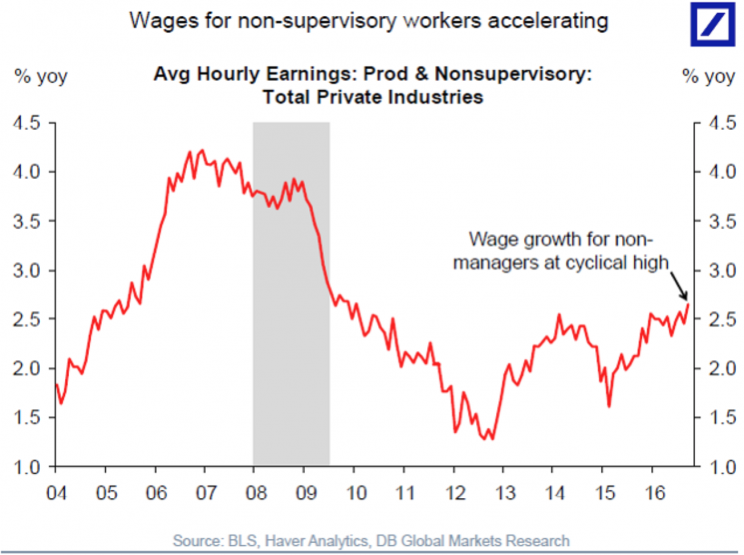America's labor market just crossed a historic milestone

The US economy just crossed a historic inflection point.
Buried in the new US employment report is an impressive stat about the labor market.
“For the first time in almost 20 years, we are now seeing a decline in the number of people outside the labor market,” Deutsche Bank’s Torsten Slok observed.

Let’s unpack this a little bit.
As the population grows and people get older, more and more Americans reach that 16+ working age. From there, you can either: 1) join the labor force, which means you have a job or you’re looking for work, or 2) you stay out of the labor force, which means you don’t have a job and you’re not looking for work. If you’re part of this latter group, you may decide to enter the labor force further down the road.
Economists, politicians and pundits often address this metric by citing the labor force participation rates, which is the labor force represented as a percentage of the working age population. Currently, the labor force participation rate sits at 62.9%. Of the 254 million Americans in the civilian population, 159.9 million are in the labor force.
In September 444,000 people entered the labor force from outside the labor force. Think about what that means. Simply put, it means more competition for folks looking for jobs.
“The fact that there are fewer outsiders in the labor market to come in and take jobs from insiders has given more bargaining power to insiders and resulted in more upward pressure on wages, in particular for non--managers,” Slok argued.

The big reason for all of this is because so many Americans are going to work or they feel confident enough to enter the labor force to look for work.
All of this is confirmation that the labor market is getting tighter.
So while this is bad news for corporate profit margins, it’s great news for American workers as their paychecks grow.
“We are at full employment,” Slok said.
–
Sam Ro is managing editor at Yahoo Finance.
Read more:
US adds 156,000 jobs, unemployment rate rises to 5.0%
A rebellion is forming among Wall Street’s forecasters
The next selloff could be triggered by something we’re not discussing right now
The stock market enters Q4 in a precarious position
UBS: Wall St.’s 2017 earnings forecast is ‘irrationally exuberant’

 Yahoo Finance
Yahoo Finance